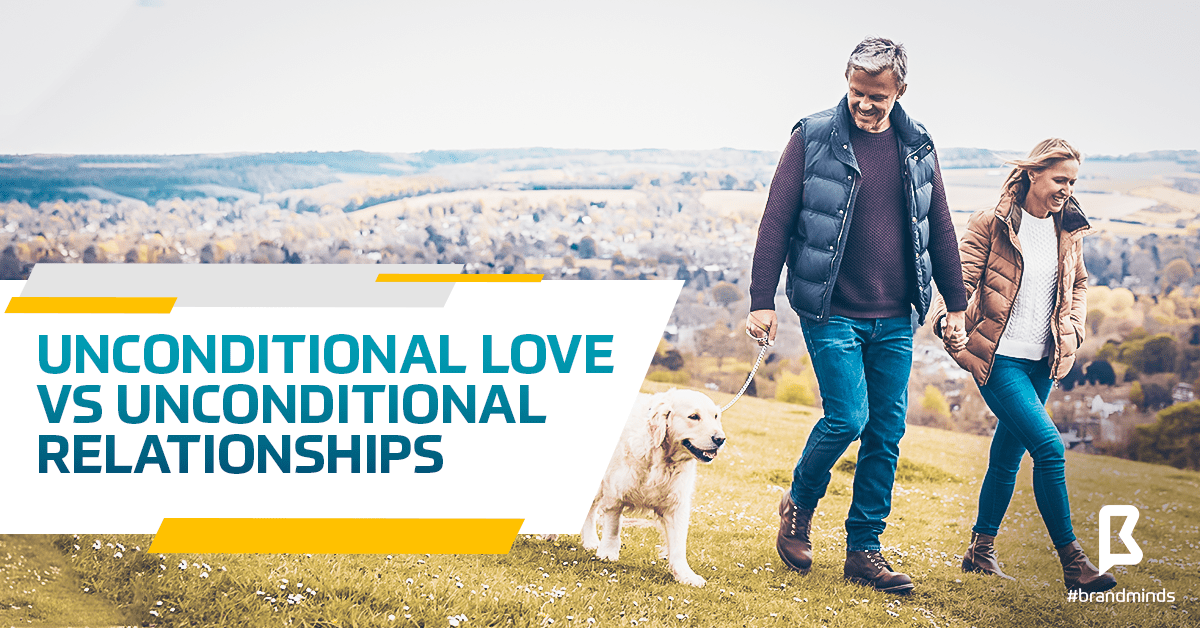Pros and Cons: Fiedler’s Contingency Model of Leadership (with examples)
Fiedler’s Contingency Model of Leadership evaluates the effectiveness of a leader in an organization.
According to this model, a leader’s effectiveness is based on the situation. The framework argues that there is no one best style of leadership and the organization should match a particular leadership style to a particular situation.
How should you apply Fiedler’s Contingency Model of Leadership to your organization?
To answer this question, I have prepared three examples.
Fiedler’s Contingency Model of Leadership example #1 – Advertising Agency Manager

Let’s imagine you are the founder of a major advertising agency. The agency manages a portfolio of several global clients and has won a number of advertising awards. But things have not been going well for the past three years and the company is going through a restructuring and realignment process.
You are looking to replace the current CEO with a new leader. Who would be the right person for the job? What type of leader should be more suited to lead the team at this particular time?
Before you begin looking for a person to hire, analyze the situation according to one of the factors underlining Fiedler’s contingency model: situational favorableness.
Situational favorableness or situational control describes the leader’s ability to control the group situation. More specifically, the degree to which the leader can influence the behaviour of group members in order to face the current situation.
There are three factors that determine the favourableness of a situation: Leader-Member Relations, Task Structure and Leader Position Power.
Leader-Member Relations refers to the degree of mutual trust, respect and confidence between the leader and the subordinates.
Leader Position Power refers to the amount of power the leader has over the group, i.e. to which extent the leader can reward or punish the group’s members.
Task Structure refers to the extent to which group tasks are clear and structured.
Since you are looking to bring a new person to lead the team, this person is at a disadvantage: the team doesn’t know him/her, and trust, respect and confidence are earned.
So the new leader has poor leader-member relations but has a strong position power since he controls resources and can reward or reprimand the team’s members.
Working in an advertising agency requires a high level of creativity therefore the team’s members perform tasks that are not structured. So the agency environment has a low task structure.
According to Fiedler’s Contingency Model of Leadership, the most effective leader in this particular situation is high-LPC or relationship-oriented. This type of leader will focus on building relationships with the team members first.
When the relationship between the leader and team members is based on confidence and trust, everyone’s work is easier. Find what is a high-LPC leader.
Fiedler’s Contingency Model of Leadership example #2 – Sportswear Shop Manager

Let’s assume you are the owner of a sportswear brick-and-mortar shop. Business is picking up and you are planning to expand to three new locations. So you need a manager for your main shop. You are looking to hire externally. He or she will lead a team of five employees. Every team member knows what they need to do to run the shop. Given the situation, the person you will hire will have strong position power, poor leader-member relations in a structured task environment.
According to Fiedler’s Contingency Model of Leadership, the leader most likely to succeed in influencing the team is high-LPC. Even in situations where tasks are structured, the leader still needs to build a good relationship with team members.
Fiedler’s Contingency Model of Leadership example #3 – App Development Team Leader

You are the CEO of a large software corporation. Over the last five years, the company has added a new service to its portfolio: application development. The offering has proved highly successful with the number of clients rising constantly every year. The application development department is comprised of four small teams lead by a team leader. One of the leaders has left the corporation and the position is vacant. Because team members have built tight relationships with one another, you have decided against hiring externally. Instead, you will promote one of the team’s members to team leader.
In this particular situation, what type of leader should be the most effective?
Because the person you promote is coming from within the team, he or she will have good leader-member relations, but a weak position power since they don’t control the resources. Also, the environment is highly technical so the tasks are structured.
According to Fiedler’s Contingency Model of Leadership, the most effective leader is low-LPC or task-oriented. The promoted person already has the support of his team members, so to be a successful leader, he or she needs to be task-oriented.
Pros and Cons of Fiedler’s Contingency Model of Leadership
The premise of Fiedler’s Contingency Model of Leadership is that a person’s leadership style is determined by the person’s life experiences and cannot be changed. That was the main approach to leadership in the sixties. Things have changed since then.
Extensive research conducted in the following decades showed that people, though influenced by previous experiences, are not defined or limited by them.
People can move past their previous experiences. Leaders can adapt their leadership style to different situations. They can shift between styles (and there are 12 of them!) to better suit the situation at hand.
In his 1995 bestseller Emotional Intelligence, renowned behaviour scientist and psychologist Daniel Goleman shows that leaders with high emotional intelligence create more connected and motivated teams who are become more invested in the success of the company.
In 2006, when Mindset: The New Psychology of Success was first published, the fixed mindset myth of You either have it or you don’t was busted. According to the author, researcher and psychologist Carol Dweck, having a growth mindset leads to a better and more successful life.
People’s set of skills and abilities can change and grow. Task-oriented leaders can learn to grow and nurture relationships.
Another criticism of Fiedler’s Contingency Model of Leadership is that it fosters a high rate of top executives turnover. The model suggests that whenever the situation requires, the current leader is simply replaced with a more suitable leader. In this respect, the model is a limiting lens through which one can assess a person’s abilities.
Fiedler’s Contingency Model of Leadership is one of the first models which measures the effectiveness of a group’s performance based on the leadership style of their leader.
The model also promotes the idea of analyzing a situation according to three relevant factors: leader-member relations, task structure and leader position power. And then simply match the most adequate leader to the situation.
Another advantage of this model is that it provides a tool for self-assessment. The Least-Preferred Co-Worker (LPC) Scale is a questionnaire that helps the leader to understand their specific leadership style: task-oriented or relationship-oriented. The leader looking to grow their leadership skills can use the LPC scale as a starting point.
Join the Conversation
We’d love to hear what you have to say.
Get in touch with us on our LinkedIn Page, Facebook Page, Twitter or TikTok.
Unconditional Love vs Unconditional Relationships
Loving and being loved unconditionally is a wonderful feeling, but building unconditional relationships is unhealthy.
Love is a powerful emotion. Apart from the usual ingredients which make breathing and living possible, love is a contributing element to our mental and physical well-being.

We need love to grow
Research has shown that when infants are born into an environment lacking in love, emotional warmth, and physical contact, the growth of their brain is hugely affected. To grow into healthy adults, we need love from the moment we enter this world.
A mother’s love is unconditional
The first person we ever receive love from is our mother. Although newborns cannot reciprocate love, the bond between the mother and her newborn child is the most powerful in the world.
If you are scientifically inclined, know that love is directly linked to oxytocin, also called the bonding hormone. Love is nature’s way to ensure the newborn baby is cared for and protected thus ensuring the perpetuation of humankind as a species.

Unconditional love is for babies and pets
It’s natural and healthy to receive unconditional love from your mother. When we become parents, we love our babies to the moon and back and we do everything in our power to protect them from harm.
But as adults, is it healthy to offer and expect unconditional love from your romantic partners?
I believe unconditional love is for babies and pets.
When it comes to grown-ups loving each other their love should be based on mutual respect and consideration, healthy boundaries and behaviours, standards and values. These are the makings of a healthy love relationship. It’s actually how any relationship between grown-ups should be no matter who they are: friends, co-workers, business partners etc.
Believing that you should allow any kind of behaviour or attitude from your romantic partner on account of your unconditional love for them is dangerous. It’s a get out of jail free card and you run the risk of your partner using this card with negative consequences for you.
Should your romantic partner hurt you emotionally or physically, do you still love him/her?
Should he/she treat you badly and make you feel unworthy, do you still love him/her?

Unconditional love and unconditional relationships – a necessary distinction
Dr Jeremy Nicholson makes an interesting distinction between unconditional love and unconditional relationships.
He says it’s wonderful when we find someone who loves us for who we are, “warts and all”. But we shouldn’t apply a “no conditions” clause to relationships.
Love is a feeling while relationships involve thoughts, reasons, and decisions.
As a result, love (feelings) and relationships (decisions) can have separate rules and expectations. Love, because it is a feeling, can be unconditional. Sometimes, no matter what a partner does, feelings toward them do not change. Relationships, however, are working partnerships. As such, they require conditions, boundaries, limits, and directions to run smoothly.
Therefore, a distinction must be made between “unconditional love”…and “unconditional relationships”.

In a healthy relationship, partners refrain from making decisions based on their feelings of love alone.
Loving your partner unconditionally is natural but accepting your partner unconditionally is toxic.
When the relationship has negative consequences on your wellbeing and your life, make sure that whatever decision you make, it is based on reason, not love.
Join the Conversation
We’d love to hear what you have to say.
Get in touch with us on Facebook Group and Twitter.
Meet Joe Escobedo, One of Singapore’s Brand Minds
Recognized as one of the “Top 20 Content Marketers” worldwide and awarded the “Most Influential Global Marketing Leader” at the World Marketing Congress, Joe has helped countless organizations and executives transform from relative unknowns to superheroes online. He has also created and led successful digital marketing, branding and PR campaigns for both startups and Fortune 500 firms. He is a contributor for both Forbes and the HuffPost, as well as an award-winning speaker. His articles, interviews and talks have been read or heard by nearly one million people.
What is the significance of Joe Escobedo “The Brand Builder” and what is the story behind it?
“The Brand Builder” is a moniker given to me by my colleagues when we were trying to create ‘superhero’ names for the team.
You worked with companies from U.S., China and Singapore, which market did you like the most and why so?
The safe answer would be Singapore, but my five years in the gauntlet known as China made me what I am today. It taught me humility and the importance of guanxi (relationships).
Name one situation that made you want to quit and change your career.
I want to learn something everyday so there were times in my career where I felt like I wasn’t learning anything new or pushing myself hard enough. It’s during those times that I’ve transitioned to a completely new field or market. Sometimes I’ve failed miserably, but I learned from each experience and have grown from it.
Name one situation that made you want to go forward.
I’m driven when people tell me I can’t do something. I’ve been told that more times than I can count throughout my career. During those times, I think in my head, “hold on a second and watch this!”
What do you think are the most difficult challenges marketeers have to face in Asian markets nowadays?
Taking a long-term view. Too often, global headquarters look to the regional office in Asia and say, “You’re our growth engine now so you should be growing at a double-digit rate.” The problem with that is that it forces marketers to look only at the month ahead, rather than what’s going to rise up and disrupt their industry next year.
Investment matters. If you would invest in one particular business field nowadays. What would that be?
If I were looking for some quick cash, I’d say anything A.I. related. But I generally play the long game so I’d invest in things people always need, like food and toilet paper.
If you could change something about Singapore’s marketing community to improve it in any way what would that be?
I’d encourage the Community to take risks and invest more in digital. An ad plastered over the MRT may look great but what’s the return on your investment?
What made you settle down in Singapore?
The short answer: love. I followed my wife who received a job offer before I did.
Meet Joe Escobedo, The Man behind the suit
Name one good habit that helps you deal with your active life.
Reading to my daughter, because in that moment, I’m not Joe “The Brand Builder.” I’m whichever character I’m reading in the book.
Name one bad habit you can’t quit.
Speed walking. I tend to walk like I’m always 15 minutes late to a meeting.
If you could be anything else but a marketing leader, what would you be?
In another life, I would’ve been a film director. I wrote, directed and edited a sketch comedy movie when I was in college. I loved the experience and think I could’ve been a third-rate Christopher Nolan.
You are recognized as “One of the Most Influential Global Marketing Leaders”. What’s your favorite movie of a global marketing leader?
Don’t know if it’s about a global marketing leader per se, but Game of Thrones. After over a decade as a marketer, I see too many similarities between that show and the marketing world, albeit slightly less violent. For instances, strong alliances with the “right” groups can help you get closer to the corporate Iron Throne.
Tell us your favorite book. What’s the best thing you learned from it?
“How To Win Friends & Influence People,” by Dale Carnegie. I’ve read the book at least 10 times and everytime I ‘learn’ something new. My favorite lesson is about putting yourself in the other’s shoes – thinking about what they would want rather than what you’d want them to do.
Name the most important value you have.
Grit. It’s the only reason I’m still around and kickin’ in the professional world. Because even when I get battered to the ground, I claw my way back up. It’s an invaluable trait for any marketer or entrepreneur.
Name the most important value a leader should have.
Empathy. Every boss wants to make the most profit they can but they can only do so with a strong team behind them. And the only way to build and retain a strong team is to empathize with your staff’s situation. If they get demotivated because a client scolded them, then give them a pep talk. If there are unseen circumstances that caused them to miss a deadline then be understanding to their situation.
If you could compare your journey as an entrepreneur with a song, what song would you choose?
“Highway To Hell.” Just kidding! Instead of a song, my journey can be best described by “The Road Not Taken” by Robert Frost. From my move to China when I was 22, my career has been characterized by these lines: “Two roads diverged in a wood, and I— I took the one less traveled by, and that has made all the difference.”
Tell us the funniest experience you had this year related to your work.
Some of the funniest moments during the past year happen behind-the-scenes. For instance, we use to have “Happy Friday” dance parties at my company. And I’m not one to brag but my rendition of “Hotline Bling” by Drake stole the show.
If you would give our readers one advice from your professional experience, what would that advice be?
To quote the great Conan O’Brien, “If you work really hard, and you’re kind, amazing things will happen.” I truly believe that. Because everyone wants to help the hardworking nice guy or gal.
What is your biggest expectation for the Brand Minds ASIA event?
I’m looking forward to seeing Gary V walk on stage to a deafening cheer, unleash some savage knowledge and drop the mic.





